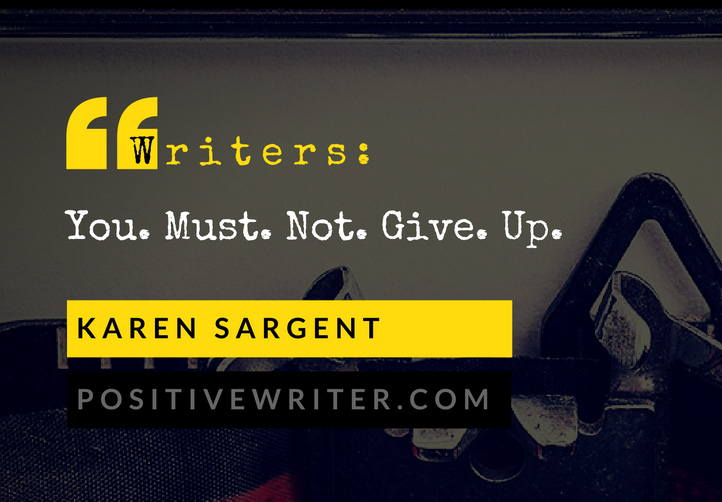Note: This is a guest post by Karen Sargent. Karen anxiously awaits the release of her debut novel Waiting for Butterflies (Walrus, 2017). Visit Karen at Karen Sargent Books and at her blog.
The good ol’ rejection letter. At its best, a rejection tells us we’re close but not quite—so we keep trying. At its worst, rejection forces us into a cavernous pit of humiliation and defeat, and we vow to never write again. (Until the next day, that is.)

We weigh our pile of rejections and remind ourselves the most exalted of authors suffered strings of rejection before their bestsellers made it into print. We cling to this oft stated fact and we take heart.
But even more heartening may be the insults found in some rejection letters received by aspiring authors of the past, insults that surely added to the injury of rejection. Yet, the writers persisted against doubt and defeat to become literary icons.
So, if you find yourself facing yet another disappointment, consider the insults below. Try to match each to the author it was intended for. Your latest rejection might not seem so bad after all.
INSULTS:
A. “Undisciplined, rambling, and thoroughly amateurish writer.”
B. “I recommend that it be buried under a stone for a thousand years.”
C. After reading a manuscript submitted a second time under a pseudonym, the editor wrote “it’s still not much of a novel.”
D. “I think the verdict will be, ‘Oh, don’t read that horrid book.’”
E. “We feel that we don’t know the central character well enough.”
F. “[It] doesn’t…have a special perception or feeling which would lift that book above the ‘curiosity level.’”
G. “This will set publishing back 25 years.” (Two-time Pulitzer Prize winner.)
H. “This author is beyond psychiatric help. Do not publish.”
I. “Good God, I can’t publish this.”
J. “We are not interested in science fiction which deals with negative utopias. They do not sell.”
AUTHORS:
1. H. G. Wells, The War of the Worlds
2. Stephen King, Carrie
3. Jacqueline Susann, Valley of the Dolls
4. Sylvia Plath, The Bell Jar
5. J. G. Ballard, Crash
6. William Faulkner, Sanctuary
7. Norman Mailer, The Deer Park
8. J. D. Salinger, The Catcher in the Rye
9. Anne Frank, The Diary of Anne Frank
10. Vladimir Nabokov, Lolita
Rejection doesn’t mean THE END. It means your novel could sell millions of copies and spend months on the New York Times bestseller list. Rejection could mean your book will be translated into different languages or made into a movie. Or maybe it means you could win the Pulitzer Prize. Twice.
But there’s one thing it means for certain. You. Must. Not. Give. Up.
If you have an experience with rejection that could inspire others, feel free to share it in the comments below.
(Answers: 1D, 2J, 3A, 4C, 5H, 6I, 7G, 8E, 9F, 10B) Sources: Litrejections.com & Authors.me
